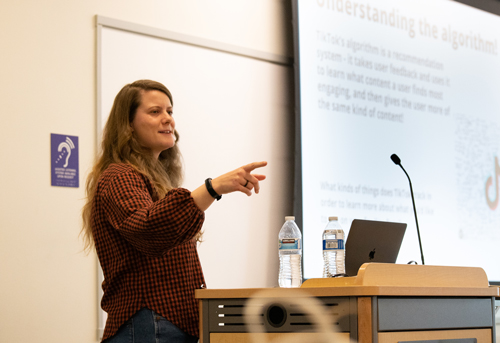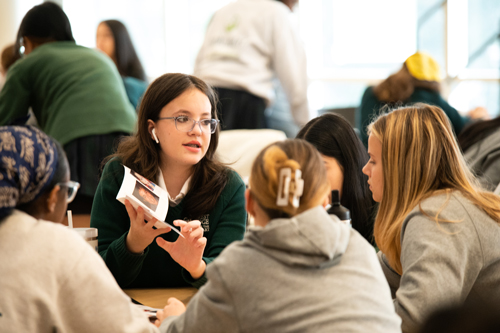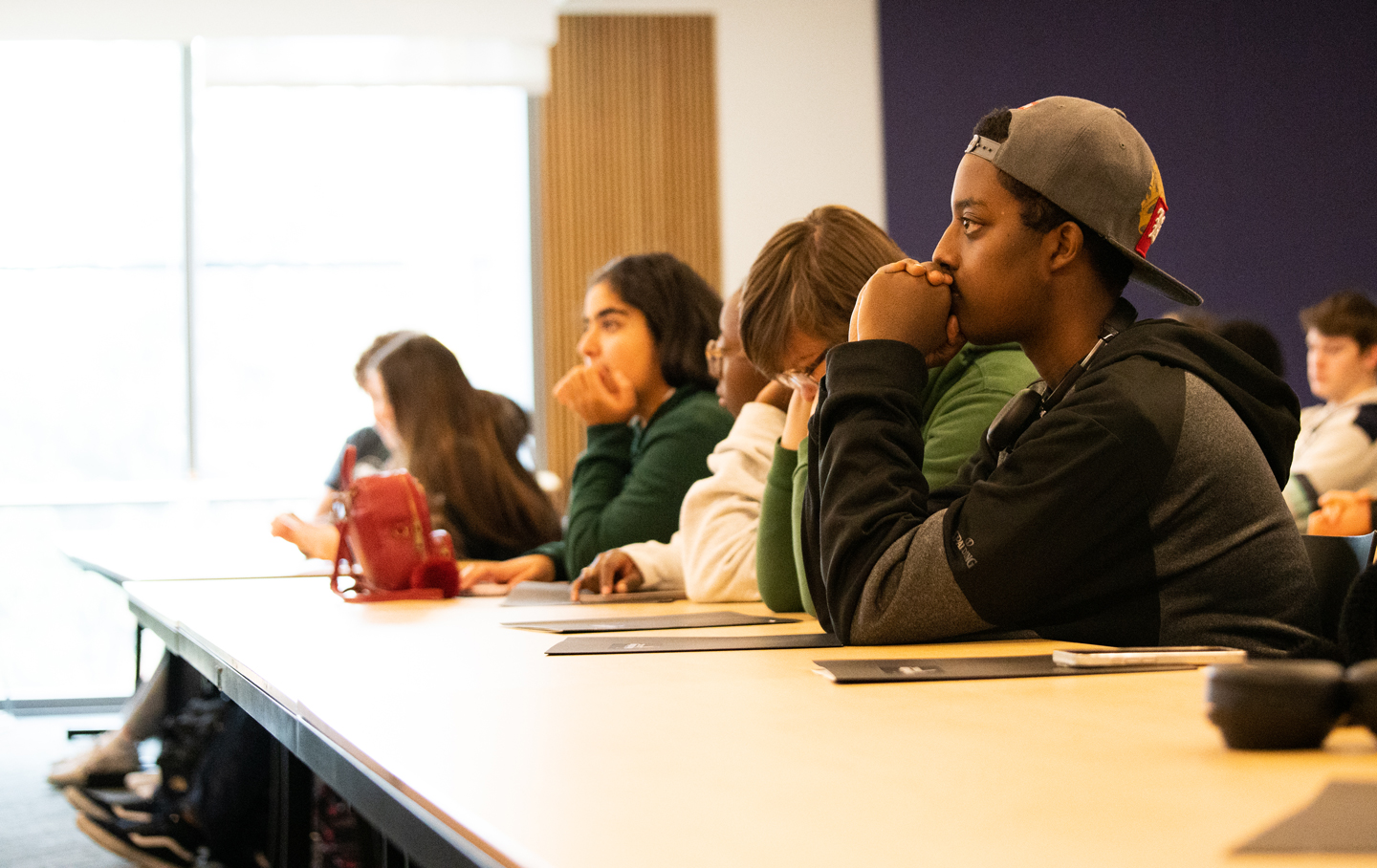Approximately 700 Washington high school students, teachers, librarians and other educators participated in MisinfoDay 2023 programs in March across three in-person events at the University of Washington in Seattle and Washington State University in Pullman and Vancouver, presented through an ongoing statewide partnership between UW’s Center for an Informed Public and WSU’s Edward R. Murrow College of Communication.
The March 14 UW Seattle event, which saw news coverage from The Associated Press, GeekWire and Real Change Seattle featured workshop sessions on topics including how to spot and assess rumors and misleading information in viral videos shared on TikTok; debunking deceptive data and improving data-reasoning skills; fact-checking claims and sources; how to compose efficient search queries; ways to manage one’s reactions to misinformation and discuss it with others; and how Northwest Public Broadcasting radio journalist Anna King wrangled facts for an investigative podcast, “Ghost Herd.”
“It’s really exciting to see a lot of people our age interested in discovering misinformation, attacking it and finding out how to avoid it,” Chris Ross, a Marysville High School student, told GeekWire in an interview. Ross is a member of the MisinfoDay Youth Advisory Board, a group of students representing 9 Washington high schools that offered ideas and feedback around the planning of this year’s program.

“Student input is integral to our program. Our student advisors help us understand their online experience — where they go looking for information, what platforms they’re on — so we can build activities that resonate with them,” said MisinfoDay program coordinator Liz Crouse. “This year they also served as teachers at the event, leading their peers through activities that they designed,” said Crouse, who, working with UW Information School associate professor Jevin West and others, helped launch the first MisinfoDay at the UW iSchool in 2019 as part of an iSchool Capstone project when she was pursuing a Master’s in Library and Information Science.
CIP postdoctoral scholar Rachel Moran-Prestridge, who facilitated the TikTok and viral misinformation workshops at the MisinfoDay 2023 events at UW Seattle and WSU Vancouver, said she was impressed by how invested student participants were in consuming content more critically on the popular social media platform.

“While they admit to probably spending a little too much time on TikTok, they were committed to consuming content in a more critical way and using their knowledge of the app and its features to their advantage to be more skeptical,” Moran-Prestridge said.
A central feature of this year’s MisinfoDay program was the Euphorigen Investigation, a tabletop version of an escape room-style game designed to immerse players in a world of manipulated media, social media bots, deepfakes and other forms of deception and lead to peer learning through post-game discussion.
The game was developed in recent years through the Loki’s Loop gaming research collaboration among the CIP and two other UW Information School-based research centers, the Technology & Social Change Group and GAMER Group, with Seattle-based PuzzleBreak. The project received funding from the Institute for Museum and Library Services in 2021 for additional development and to test the game in 10 public libraries across the U.S.The game has also been adapted for use in Latvia and New Zealand.
Other MisinfoDay workshop facilitators and presenters at the Pullman, Seattle and Vancouver events in March included Mike Caulfield, a CIP research scientist who developed the SIFT method for vetting sources and contextualizing claims online; Chris Coward, a CIP co-founder and senior principal research scientist at the UW iSchool, who worked with Jin Ha Lee, a CIP faculty member and iSchool professor, to help develop the escape room gaming activities; Jordan Foley, an assistant professor at WSU Murrow; Emma Gray, a product manager for Search Coach, an information literacy tool that’s part of Microsoft’s recently-announced suite of Learning Accelerators; Nanu Iyer, a clinical associate professor and director of integrated communication at WSU Vancouver; and Sarah Morris, a research coordinator and instructional strategist working on a National Science Foundation funded project co-managed by HacksHackers and the University of Washington.
This story was originally published by the Center for an Informed Public. Learn more on the CIP's MisinfoDay page.
Photos by Doug Parry, UW Information School
